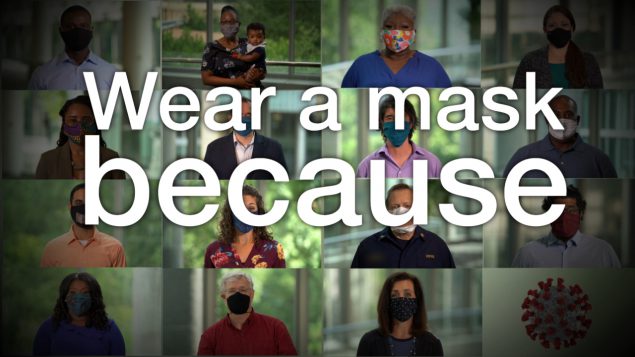Things to Know about the COVID-19 Pandemic
Things to Know about the COVID-19 Pandemic
COVID-19 cases and deaths are rising across the United States. We all must remain vigilant. The changes we have had to make to routines and daily life are extremely hard, but these changes are even more important now and in the future. We must stop the spread of this new and dangerous virus. The more steps you and your family can take to prevent the spread of COVID-19, the safer you will be.
Three Important Ways to Slow the Spread
- Wear a mask to protect yourself and others and stop the spread of COVID-19.
- Stay at least 6 feet (about 2 arm lengths) from others who don’t live with you, and avoid crowds.
- Wash your hands with soap and water for 20 seconds or use hand sanitizer with at least 60% alcohol.
How to Protect Yourself When Going Out
- Wear a mask that covers your nose and mouth to help protect yourself and others. Masks offer some protection to you and may protect those around you if you are unknowingly infected with the virus that causes COVID-19.
- Choose a mask with two or more layers of washable, breathable fabric that fits snugly against the sides of your face.
- Stay 6 feet apart and avoid crowds.
- The more people you are in contact with, the more likely you are to be exposed to COVID-19.
- Avoid indoor spaces as much as possible, particularly ones that aren’t well ventilated.
- You may find it harder to stay 6 feet apart in indoor spaces.
- Wash your hands often.
- Use soap and water for 20 seconds, especially after you have been in a public place or hand sanitizer if soap and water aren’t available.
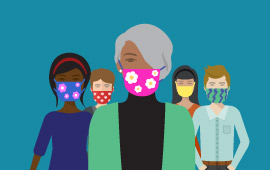
If You are at Risk of Getting Very Sick
- People of any age can get COVID-19, even healthy young adults and children.
- People who are older or have certain underlying medical conditions are at higher risk of getting very sick from COVID-19.
- Other groups may be at higher risk for getting COVID-19 or having more severe illness.
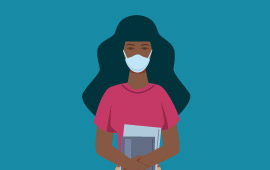
What to Do If You're Sick
- Stay home except to get medical care. Most people with COVID-19 have mild illness and recover at home without medical care.
- Isolate yourself from other members of your family to prevent spread to them and the people that they may have contact with, like grandparents.
- If you have to leave isolation, wear a mask, stay 6 feet apart from others, wash your hands frequently, and clean all touched surfaces.
- Even if you don’t feel sick, you can spread COVID-19 to others. Be sure that you protect everyone as though they are the most fragile person in your family.
- Get care immediately if you are having emergency warning signs, like trouble breathing, pain or pressure in chest.
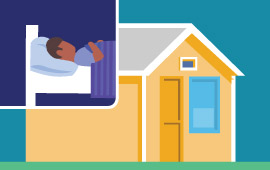
How to Get a Test for Current Infection
- You can visit your state or local health department’s website to look for the latest local information on testing.
- If you have symptoms of COVID-19 and want to get tested, call your healthcare provider first.
- If you have symptoms of COVID-19 and choose to not get tested, it is important to stay home. Find out what to do if you are sick.
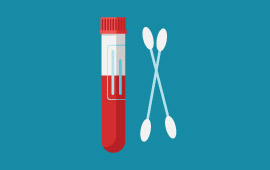
How to Cope with Stress
- Care for yourself one small way each day.
- Unwind by doing yoga, listening to music, or gardening.
- Find new ways to connect with family and friends, get support, and share feelings.
- Eat healthy foods and get enough rest
- Relax by reading, listening to music, or starting a new hobby.
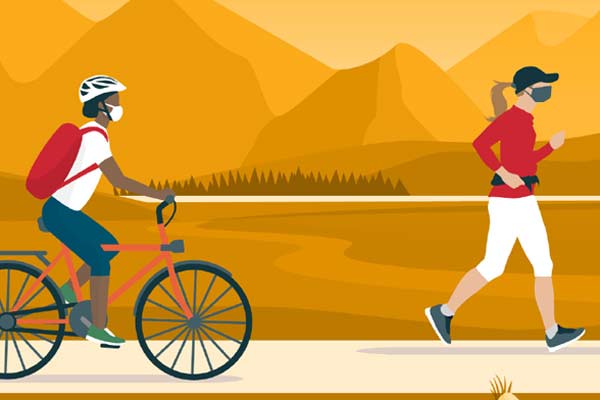
What Symptoms to Watch For
The most common symptoms of COVID-19 are
- Fever
- Cough
- Headaches
- Fatigue
- Muscle or body aches
- Loss of taste or smell
- Sore throat
- Nausea
- Diarrhea
Other symptoms are signs of serious illness. If someone has trouble breathing, chest pain or pressure, or difficulty staying awake, get medical care immediately.

Last Updated Dec. 17, 2020



